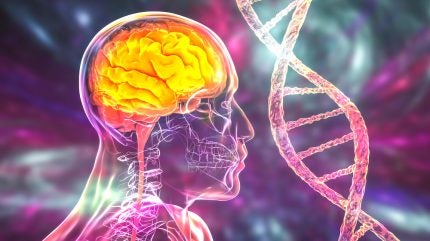

uniQure’s share price has more than doubled following positive interim data from two Phase I/II studies investigating its gene therapy for Huntington’s disease.
In patients in the high-dose cohort of AMT-130, there was an 80% slowing of disease progression in the composite Unified Huntington’s Disease Rating Scale (cUHDRS) compared to an external control group. Meanwhile, patients in the lower dose group saw a 30% slowing of disease progression.

Discover B2B Marketing That Performs
Combine business intelligence and editorial excellence to reach engaged professionals across 36 leading media platforms.
Mean cerebrospinal fluid levels of neurofilament light protein (NfL) –a recognised biomarker of neurodegeneration – reduced by 11% compared to baseline across all patients who received the gene therapy.
The new data has pleased investors, with uniQure’s shares jumping by 136%, from $3.78 at closing on July 8, before the July 9 announcement, rising to $8.71 on July 12.
Following the new data, uniQure has disclosed that it expects to meet with the FDA in the second half of 2024 to further discuss further development of the therapy.
uniQure’s chief medical officer Walid Abi-Saab said: “We believe this is the first clinical trial of any investigational medicine for Huntington’s disease to show evidence of a potential long-term clinical benefit and reduction of a key marker of neurodegeneration.

US Tariffs are shifting - will you react or anticipate?
Don’t let policy changes catch you off guard. Stay proactive with real-time data and expert analysis.
By GlobalData“Moreover, given the one-time administration of AMT-130, we are in a unique position to continue accumulating longer-term patient outcomes from the Phase I/II studies to support the emerging therapeutic benefit.”
The 24-month follow-up data comes from 21 of 29 Huntington’s patients who received one of two doses of AMT-130 in two trials conducted in Europe (NCT0543017) and the US (NCT04120493).
AMT-130 aims to reduce the levels of huntingtin (HTT), a biomarker associated with Huntington’s, in the brain. The drug is given to Huntington’s patients by a specialised type of brain surgery which delivers it into the ventricles of the brain.
Despite the recent positive data, it hasn’t been an easy ride for uniQure so far. In August 2022, dosing was paused for two groups in the European open-label trial after serious side effects were reported for patients who received the high dose of AMT-130. The pause was lifted in November 2022 with new safety measures in place after three patients were hospitalised.
In the previous December 2023 readout, uniQure said that both doses of AMT-130 appeared to be preserving or improving neurological function, however, investors still weren’t convinced, with the company’s share price taking a hit after the announcement.
This data readout follows on from the early June announcement that the company has received the Regenerative Medicine Advanced Therapy (RMAT) designation from the US Food and Drug Administration (FDA). AMT-130 is the first gene therapy for Huntington’s disease to receive RMAT designation.
Huntington’s disease is an inherited condition that damages nerve cells in the brain, which worsens over time and impacts a patient’s movement, cognition and mental health.
There are no approved drugs to slow the progression of Huntington’s disease, but drugs such as haloperidol, tetrabenazine, and amantadine are prescribed to control symptoms.
Cell & Gene Therapy coverage on Clinical Trials Arena is supported by Cytiva. Editorial content is independently produced and follows the highest standards of journalistic integrity. Topic sponsors are not involved in the creation of editorial content.






